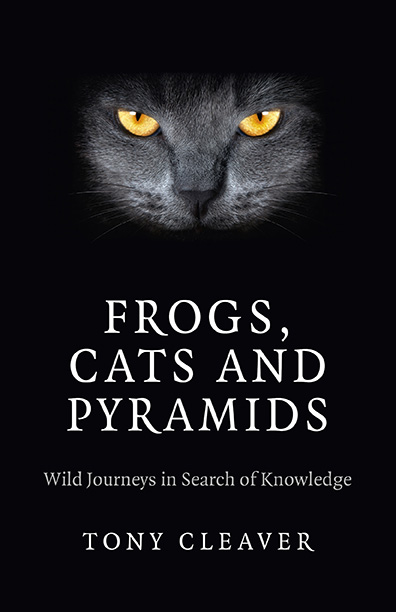Frogs, Cats and Pyramids
Assorted characters who take you on travels through maths, science, language and literature like you never imagined in school.

Assorted characters who take you on travels through maths, science, language and literature like you never imagined in school.
Assorted characters who take you on travels through maths, science, language and literature like you never imagined in school.
Body, mind & spirit (general), Philosophy (general), Study aids (general)
Imagine a group of people in a mountain retreat seeking to understand why we categorise knowledge into various academic disciplines, each with its own way of looking at reality. Mathematics; the Arts, Language; Humanities; Science; Computer Technology, and Religion, Faith and Ethics – that is the way we learn to see the world. Each discipline locks us into a way of seeing that separates us from other ways. Imagine a cynic, a professional thief who seeks only to exploit others. Imagine if a specialist academic wanted to tell a story, relate an adventure that in some way resonates with his or her way of seeing things. How would the mixed company enjoy these various ways of seeing the world?
Click on the circles below to see more reviews
The author has assembled under a common framework nine short stories dealing with contemporary disciplines, ranging from literature and foreign languages, to mathematics and sciences, and concluding his tour with computer science, economics and religion, each analysing a different way in which we learn to see the world... There is a framework embracing the individual tales in the book: a group of people with different attitudes is staying in a mountain retreat, seeking to understand why knowledge has always been categorised into various academic disciplines, each with its own way of looking at reality. The structure could remind one of Boccaccio or other classic authors, putting several tales in a common framework with an artifice. We several times meet David and Ana Maria, Ivan and Abdul, Hugo and Julia, discussing among themselves Mathematics, Arts, Humanities, Sciences, Computer Science, Economics, Religion and Ethics. ‘Faith in science is no different from faith in God,’ says David. ‘There is something irreducibly mystical in all life,’ says Ana Maria (p viii). Each discipline is a way of seeing that separates us from other ways. It’s also a Standpoint, one of several different points of view through which it’s possible to form an understanding of the surrounding multiplicity of experiences. Lending from Classical German Philosophy we can easily make reference to the notion of Standpunkt, the only possible way to understand experiences, as explained by Kant and Fichte in their Transcendental Philosophy. Concepts without intuition are empty, intuitions without concepts are blind, so the famous Kantian motto said. Contemporary epistemology is dealing with these pairs also today, either trying to find new paths like Chalmers, Ladyman or Unger, or trying to think again following the paths of the post-kantian understanding of concepts, like Brandom and McDowell. In this book the characters take you on travels through Maths, Science, Linguistics and Literature like you never imagined in school. This could be very useful for high school students trying to make sense of the structure of the school itself, or for younger children assisted by their parents. Also the general reader could gain more interest in popular philosophy and the nature of different sciences. ~ Giovanni Cogliandro, ESSSAT News and Reviews: European Society for the Study of Science and Theology - 25:2